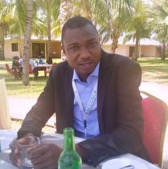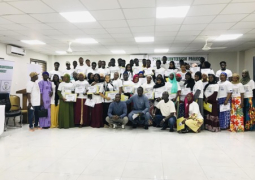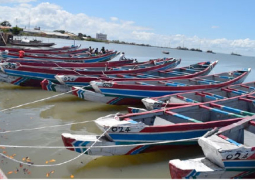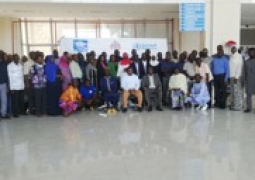
Baboucarr N. Joof was speaking on Saturday at Medina Sancha in Kiang East, Lower River Region as part of their ongoing enrolment of beneficiaries for the Nafa programme.
The programme is a component of the US$ 31 million Gambia Social Safety Net Project, being jointly funded by the World Bank and the Government of The Gambia.
The National Nutrition Agency (NaNA), Directorate of Social Welfare and Department of Community Development are implementing the programme, which seeks to strengthen the coordination of social assistance activities and increase the inclusion of the extremely poor in the Nafa Program.
The programme is a combination of Cash Transfer and Social and Behavioural Change Communication (SBCC) that is being implemented in phases.
The first phase covers three Districts (Foni Bintang in West Coast Region, Nianija in the Central River Region and Wulli West in the Upper River Region.) The project is now rolling out to the 17 other districts across the country.
However, the initiative is targeting 15,606 extreme poor households which represents approximately 40 percent of the extremely poor households in The Gambia. The project targets the 20 poorest districts in The Gambia.
The Project Development Objective (PDO) is to improve the coordination of social assistance activities, provide temporary social assistance support to rural households in the wake of COVID-19, and increase inclusion of the extreme poor in the Nafa Program.
However, Joof explained that they are expected to enroll 1083 in LRR, noting that the rainy season is now here and that they have to be smart in the way they organise themselves knowing that some beneficiaries are farmers.
“We do not also want to stretch data collectors whereby they will do poor data entry. They are doing a fantastic job and we want to ensure they enter quality data that is the right beneficiary households,” he stated.
He, however clarified that the programme is not for all households in The Gambia, but it is meant for the extremely poor.
Sako Jammeh of the Department of Community Development, described the enrolment exercise as smooth as people are people cooperative.
Also speaking, Fatoumatta Jawneh of the Department of Community Development, said at first their cameras were not clear but since they were regulated they haven't experienced any challenges so far.
Ndumbeh Touray, a principal recipient at Medina Sancha, said the project would significantly support their feeding especially looking at the price of basic food commodities in the country.
Abdoulie Ceesay, another beneficiary at Sare Sarjo, lamented the hardship he and his family is undergoing, saying sometimes even to buy a candle to light in his house is a challenge.
But with the Nafa Program, he sounds confident that he would be now able to take care of his family and other issues at hand.
Sarjo intends to use part of the money to buy small ruminants and rare them at his backyard as a start. This, he added, would ensure he move above the poverty line before the project phase out.
Read Other Articles In National News




